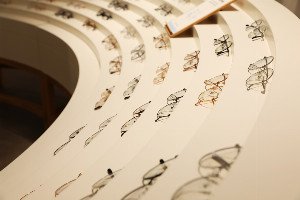Mariana de Almeida Andrade, Lucas Cordeiro Freitas
Acidente vascular cerebral e habilidades sociais em adultos
Introduction
Acidente vascular cerebral e habilidades sociais em adultos. Estudo explora a relação entre AVC e habilidades sociais em adultos. Indica que indivíduos com AVC não apresentam déficits graves de HS.
Abstract
Estudos têm apontado um crescente número de indivíduos acometidos por lesões encefálicas. Entre elas, o acidente vascular cerebral (AVC) é considerado um problema de saúde pública, por apresentar como consequência, entre outros fatores, o comprometimento de habilidades sociais (HS). Este estudo teve como objetivo geral investigar a relação entre AVC e HS em adultos. Foram entrevistados 100 indivíduos, residentes em Maceió, capital alagoana, com idade entre 18 e 59 anos. Dessa amostra, 50 indivíduos tinham histórico de AVC e 50 não. Os instrumentos utilizados foram uma anamnese, o Mini Exame do Estado Mental (Meem) e o Inventário de Habilidades Sociais (IHS-Del Prette). A comparação dos repertórios de HS entre os grupos demonstrou que os participantes com AVC relataram repertórios de HS menos prejudicados que os participantes sem AVC. Os resultados indicaram que não foram encontrados déficits graves de HS nessa população. Além disso, foi encontrado que o estado cognitivo dos participantes com AVC não se correlacionou com seus repertórios de HS. Os resultados obtidos salientam a importância da continuidade de estudos com essa população no contexto brasileiro e apontam a necessidade de elaboração de instrumentos específicos para a avaliação de HS para indivíduos que sofreram AVC.
Review
This study delves into a critically important area, investigating the relationship between stroke (AVC) and social skills (HS) in adults, a topic with significant public health implications given the growing number of individuals affected by neurological lesions. Employing a comparative design, the researchers recruited 100 participants from Maceió, Brazil, equally divided between individuals with and without a history of stroke. The methodology involved an anamnesis, the Mini Mental State Examination (MMSE), and the Inventário de Habilidades Sociais (IHS-Del Prette). Strikingly, the findings indicated that the stroke group reported *less impaired* social skills compared to the non-stroke group, with no severe HS deficits identified in the stroke population. Furthermore, no correlation was found between cognitive status (as per MMSE) and social skills in the stroke cohort. While the study addresses a pertinent gap in the literature, particularly within the Brazilian context, its primary finding—that individuals post-stroke reported *less impaired* social skills than controls—warrants careful scrutiny. This counter-intuitive result could point to several methodological considerations. Firstly, the reliance on a self-report instrument (IHS-Del Prette) for social skills assessment in a population that may experience impaired self-awareness or executive function deficits post-stroke could lead to skewed perceptions of their own abilities. The abstract's own recommendation for specific instruments for this population indirectly supports this concern. Secondly, the abstract does not detail the severity, type, or specific lesion location of the strokes, which are crucial factors known to significantly impact cognitive and social functioning. The lack of correlation between MMSE scores and HS, while intriguing, might also suggest that the MMSE does not adequately capture the nuanced cognitive functions (e.g., theory of mind, executive control) highly relevant for complex social interactions. Despite these critical points regarding the interpretation of the main finding, the study makes a valuable contribution by raising crucial questions and highlighting areas for future research. The authors' call for continued studies in the Brazilian population is well-founded, emphasizing the need for culturally and contextually relevant data. Crucially, the recommendation for the development and validation of specific, possibly more objective, assessment instruments for social skills in stroke survivors is a key takeaway. Future research could benefit from incorporating multi-informant perspectives (e.g., family members, caregivers) or observational measures to provide a more comprehensive and objective evaluation of social skills post-stroke, thereby mitigating potential self-report biases and offering a clearer picture of the challenges faced by this population.
Full Text
You need to be logged in to view the full text and Download file of this article - Acidente vascular cerebral e habilidades sociais em adultos from Gerais: Revista Interinstitucional de Psicologia .
Login to View Full Text And DownloadComments
You need to be logged in to post a comment.
Top Blogs by Rating
Unseen Engineers: Nanotech's B...
By Sciaria
Big Data's Unintended Conseque...
By Sciaria
Andragogy: The Secret to Engag...
By Sciaria
Favorite Blog
The Invisible Architects: Are...
By Sciaria
Identical Twins Aren't Identic...
By Sciaria
Your DNA's Ancient Story: Unlo...
By Sciaria





